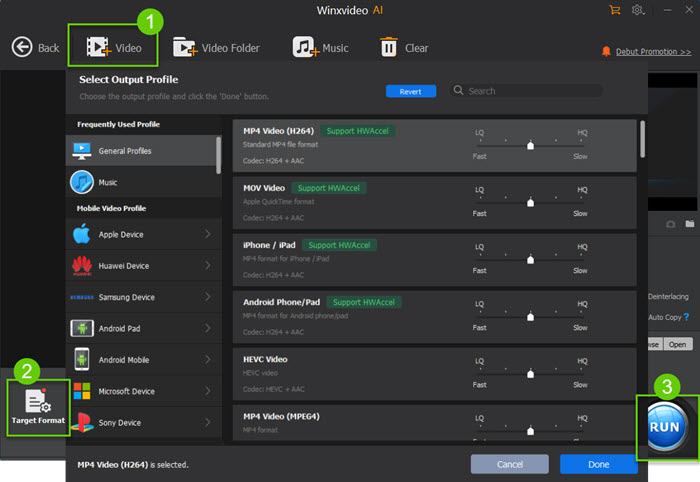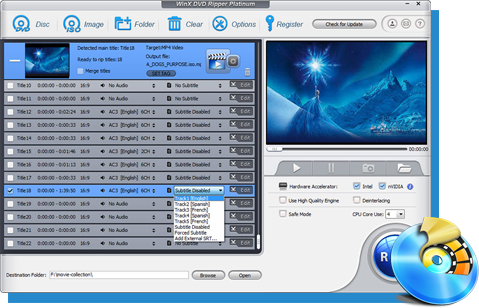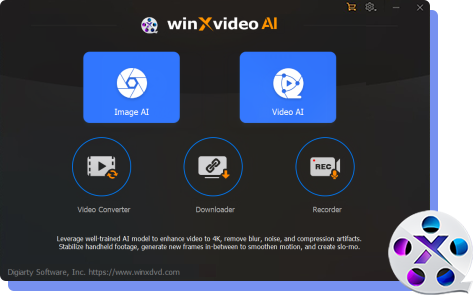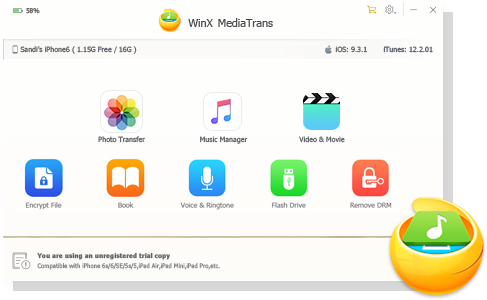Best GPU for Plex (4K) Video Transcoding
Plex is One of the Most Popular & Flexible Family Streaming Tool
Plex's hardware acceleration is one of the key features of Plex streaming. As you can select whatever the media file amd play it back within the Plex, a HD movie, a long series of anime episodes. The Plex will transcode your media files on server side to the playable format for your client , which dramatically burdens the system by it's procedure. Thus, a powerful GPU, like NVIDIA's GPU & AMD's discrate graphic card is very important to Plex streaming.

Required video format for Plex:
- Video codec: H.264 & AAC
- Framerate 30fps & below
- Resolution rate: 1080p
The benefit of Plex's hardware acceleration:
- Multiple video could able to be streamed in the same time on different devices
- Unparalleled steaming efficiency and speed, videos can start streaming faster and buffer less often.
- Support 4K HEVC streaming for better graphic performance and more smoothly
- By offloading CPU-intensive transcoding tasks to dedicated hardware, video streaming has less of a performance impact on your computer.
Plex GPU Transcoding System Requirements
Plex Media Server's GPU transcoding uses Intel Quick Sync Video for decoding and encoding. It's available in Intel Core (i3/i5/i7/i9) processors and some other Intel processors, including recent Xeon, Atom, or Celeron models. For Plex GPU transcoding, make sure your device meet the following requirements.
- 2nd-generation Intel Core (Sandy Bridge, 2011) or later (5th-gen Broadwell or newer is preferred)
- Support Intel Quick Sync Video
- Plex Media Server 1.9.3 or later
- An active Plex Pass subscription
If you Windows computer has NVIDIA or AMD* GPU, you are recommended to install the latest NVIDIA drivers for Windows or AMD drivers for Windows to make sure that Plex can transcode using GPU when Intel Quick Sync Video is not unavailable.
Free Download Effective Plex Software Transcoder
Free download Winxvideo AI to transcode all media files to the best Plex client playable format and video streams. With support for the level-3 Nvidia/AMD/Intel QSV GPU hardware acceleration, it bulk converts Plex 4K 10bit/HD 1080p/720p video streams smoothly without high CPU usage.
Which GPU is Better for Plex Hardware Transcoding?
NVIDIA's Graphic card take the advantage of its first mover advantage in video encoder/decoder domain. With their long-term dedication to computer video assistant, specifically the video quality enhancement, undoubtable the NVIDIA GPU series would be one of the best option. Their NVENC technic provides a fully-accelerated & hardware-based video decoding for almost all codecs, which dramatically alleviate the burden of system resources. NVDEC supports much faster than real-time decoding which makes it suitable to be used for transcoding application like Plex.
According to the professional test data, considered the turbulent of network factor, as the Plex usually take up to 68MBit(4K)~8.4MBit(1080p) bitrate transcoding, we could easily find that NVIDIA's high end graphic core, the TU104, GP104, like RTX 3080, RTX 2080, RTX 1080, Quadros are performing a better transcoding efficiency (support more sessions in parallel).

One thing we should notice is that the Quadro Series (NVIDIA's workstation graphic card series) exhibits great capability at video transcoding. Due to adaption of the use of ECC memory and enhanced floating point precision, it's performed calculation property that gives a lead to a better Plex GPU transcoding capacity.

Besides the 4K resolution baseline, if we focus on Plex 1080p streaming & transcoding, then majority of the NVIDIA cards will give a decent support.
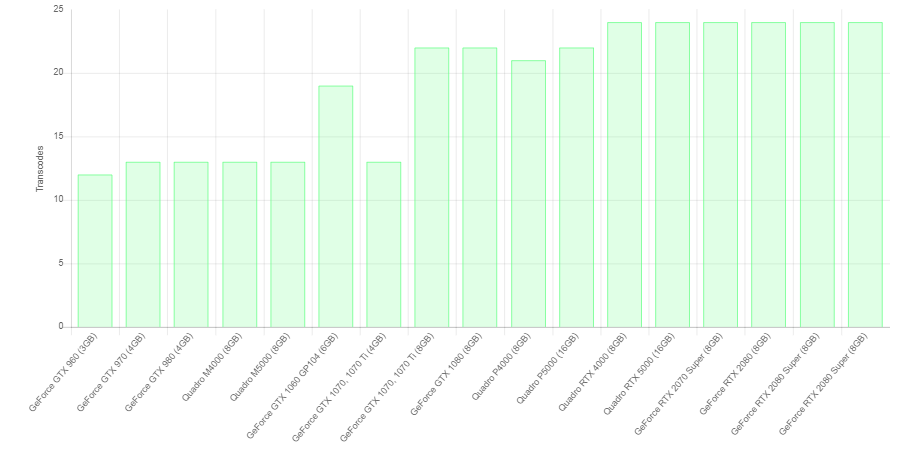
AMD has their own hardware acceleration that support Plex too, the AMD VCE technology is also capable to help the Plex for its transcoding tasks. Theoretically both NVIDIA and AMD graphic card are able to help transcoding, but comparatively, NVIDIA performs a better efficiency than AMD's hardware transcode support. Meanwhile, AMD's passive strategy focuses on the video streaming and no enough evidence shows that Radeon is superior to NVIDIA on video transcoding. To sum up, we would like to offer the NVIDIA GPU as the best choice of promoting hardware acceleration for Plex.
The NVIDIA Quadro P2200 is a good GPU to choose from for running Plex Server smoothly. It transcodes 1080p streams and even 4K streams effortlessly. It comes with 1280 Cuda Cores, 40 ROPs, 80 TMUS, and a 5 GB GDDR5X memory with a 160-bit bus speed. The GPU ensures great Plex transcoding, particularly in Full HD content streams.
The Gigabyte GeForce GTX 1050 Ti OC is another low-cost but effective GPU for Plex transcoding. The GTX 1050 Ti is armed with 768 CUDA cores, 32 ROPs, 48 TMUs, and a 4 GB 128-bit GDDR5 memory interface. It can easily transcode 1080p 60fps streams to 720p, which matches the performance of the Nvidia 4GB GTX 1070 and 1070 Ti.
The EVGA GeForce GTX 1070 8GB version is a great choice for GPU 4K transcoding. It easily transcodes 4K to 1080p (8Mbit) and 22 1080p (10Mbit) to 720p (4Mbit). The GPU show better performance than Nvidia GTX 1660, GTX 1050 Ti, and Nvidia Quadro P2200. The card is in a very low temperature during Plex 4K transcoding process. EVGA ACX 3.0 cooling technology is also available for the EVGA GeForce GTX 1070.
Conclusion: Generally speaking, the NVIDIA Graphic cards has clearly better support to video streaming than their rival AMD does. If you need to upgrade your GPU for better Plex transcoding, an NVIDIA card seems to be a better option.
Tips: How to enable GPU transcoding in Plex?
To enable GPU/hardware transcoding on Plex when your Plex server has the required hardware,
- Open a Web browser on your device and go to your Plex server.
- Log into your Plex server with your account as an administrator.
- Go to Settings > the wrench > link the Plex server page.
- Click Transcoder under the Settings section on the left pane.
- Check the checkbox Use hardware acceleration when available.
- Click the Save Changes button. Now the GPU transcoding in Plex is enabled.
Does NAS Device Have Hardware Acceleration for Plex Transcoding?
Due to the crummy performance of ordinary NAS systems (compare to personal computer), from Plex official support and their list of Plex NAS Compatibility, the general performance of NAS hardware acceleration support isn't ideal as well.
Manufacturer |
Model |
SD 480p / 576p |
HD 720p |
HD 1080p |
4K SDR 2160p |
| Asustor | AS-3102T v2 | Yes |
Some |
No |
No |
| Netgear | RN202 | Yes |
Yes |
Some |
No |
| Netgear | RN4220x | Yes |
Yes |
Yes |
Some |
| QNAP | TS-251 | Yes |
Yes |
Some |
No |
| Synology | DS1019+ | Yes |
Yes |
Some |
No |
In general, most of NAS devices are incompetent to accomplish the hardware acceleration. Only limited option with higher graded hardware specification could able to play the media with hardware acceleration. For customer who doesn't want to switch to new NAS system, it could be extremely difficult to adapt the hardware acceleration to their NAS and to take a good use of their Plex hardware transcode function. Make sure the operating system/firmware of the NAS device is up-to-date.
For those upgradable/expandable configuration, you'd better upgrade the graphic card to NVIDIA GTX 1050 or better to ensure a fluent, swift 4K streaming experience.
Check the full list of NAS Compatibility when you don't know whether your NAS device support GPU transcoding.
When considering the best GPU for Plex, the NVIDIA GeForce RTX series emerges as a top choice. These GPUs provide superior hardware acceleration, particularly with enhanced NVENC support, ensuring efficient transcoding performance. While the GeForce GTX series offers a cost-effective solution suitable for moderate workloads, the RTX series brings advanced features at a higher cost. It strikes a balance between performance and expense, making it an optimal choice for users prioritizing transcoding efficiency and seeking a robust GPU for Plex.
Too Prohibitive to Upgrade GPU? Resort to A High Cost-effective Software Transcoder
We don't want spend another 500 dollars to upgrade the graphic card, neither another hundreds to replace the NAS system. And do not forget: to enable hardware acceleration & transcoding via Plex, you will need to spend another 119.99 dollars purchasing a premium pass.
All we need is to have the Winxvideo AI as your assistance, The Winxvideo AI is able to transcode all media files to the best Plex client playable format (be it MP4, MOV, MKV, AVI, SWF, FLV, AVCHD, MTS...). With its batching process function plus the level-3 Nvidia/AMD/Intel QSV GPU hardware acceleration supported, it bulk converts your media files to Plex supported formats (e.g., MP4, MOV, AVI, MKV, WMV...) without chewing up your system resources on CPU & RAM and offers you a smoother streaming experience.
